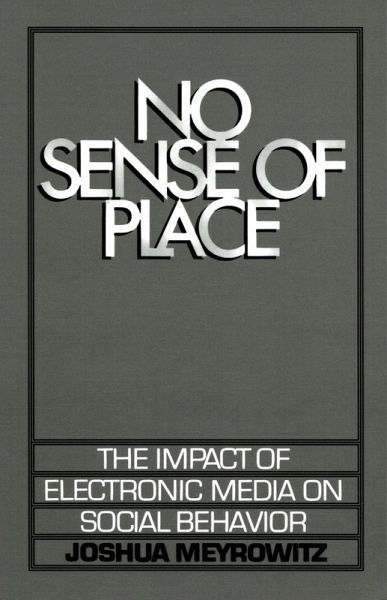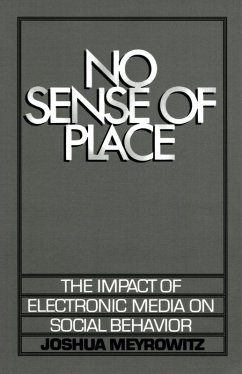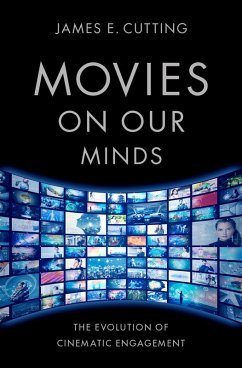
No Sense of Place (eBook, PDF)
The Impact of Electronic Media on Social Behavior
Versandkostenfrei!
Sofort per Download lieferbar
9,95 €
inkl. MwSt.
Weitere Ausgaben:

PAYBACK Punkte
5 °P sammeln!
How have changes in media affected our everyday experience, behavior, and sense of identity? Such questions have generated endless arguments and speculations, but no thinker has addressed the issue with such force and originality as Joshua Meyrowitz in No Sense of Place. Advancing a daring and sophisticated theory, Meyrowitz shows how television and other electronic media have created new social situations that are no longer shaped by where we are or who is "with" us. While other media experts have limited the debate to message content, Meyrowitz focuses on the ways in which changes in media r...
How have changes in media affected our everyday experience, behavior, and sense of identity? Such questions have generated endless arguments and speculations, but no thinker has addressed the issue with such force and originality as Joshua Meyrowitz in No Sense of Place. Advancing a daring and sophisticated theory, Meyrowitz shows how television and other electronic media have created new social situations that are no longer shaped by where we are or who is "with" us. While other media experts have limited the debate to message content, Meyrowitz focuses on the ways in which changes in media rearrange "who knows what about whom" and "who knows what compared to whom," making it impossible for us to behave with each other in traditional ways. No Sense of Place explains how the electronic landscape has encouraged the development of: -More adultlike children and more childlike adults; -More career-oriented women and more family-oriented men; and -Leaders who try to act more like the "person next door" and real neighbors who want to have a greater say in local, national, and international affairs. The dramatic changes fostered by electronic media, notes Meyrowitz, are neither entirely good nor entirely bad. In some ways, we are returning to older, pre-literate forms of social behavior, becoming "hunters and gatherers of an information age." In other ways, we are rushing forward into a new social world. New media have helped to liberate many people from restrictive, place-defined roles, but the resulting heightened expectations have also led to new social tensions and frustrations. Once taken-for-granted behaviors are now subject to constant debate and negotiation. The book richly explicates the quadruple pun in its title: Changes in media transform how we sense information and how we make sense of our physical and social places in the world.
Dieser Download kann aus rechtlichen Gründen nur mit Rechnungsadresse in A, B, BG, CY, CZ, D, DK, EW, E, FIN, F, GR, HR, H, IRL, I, LT, L, LR, M, NL, PL, P, R, S, SLO, SK ausgeliefert werden.













